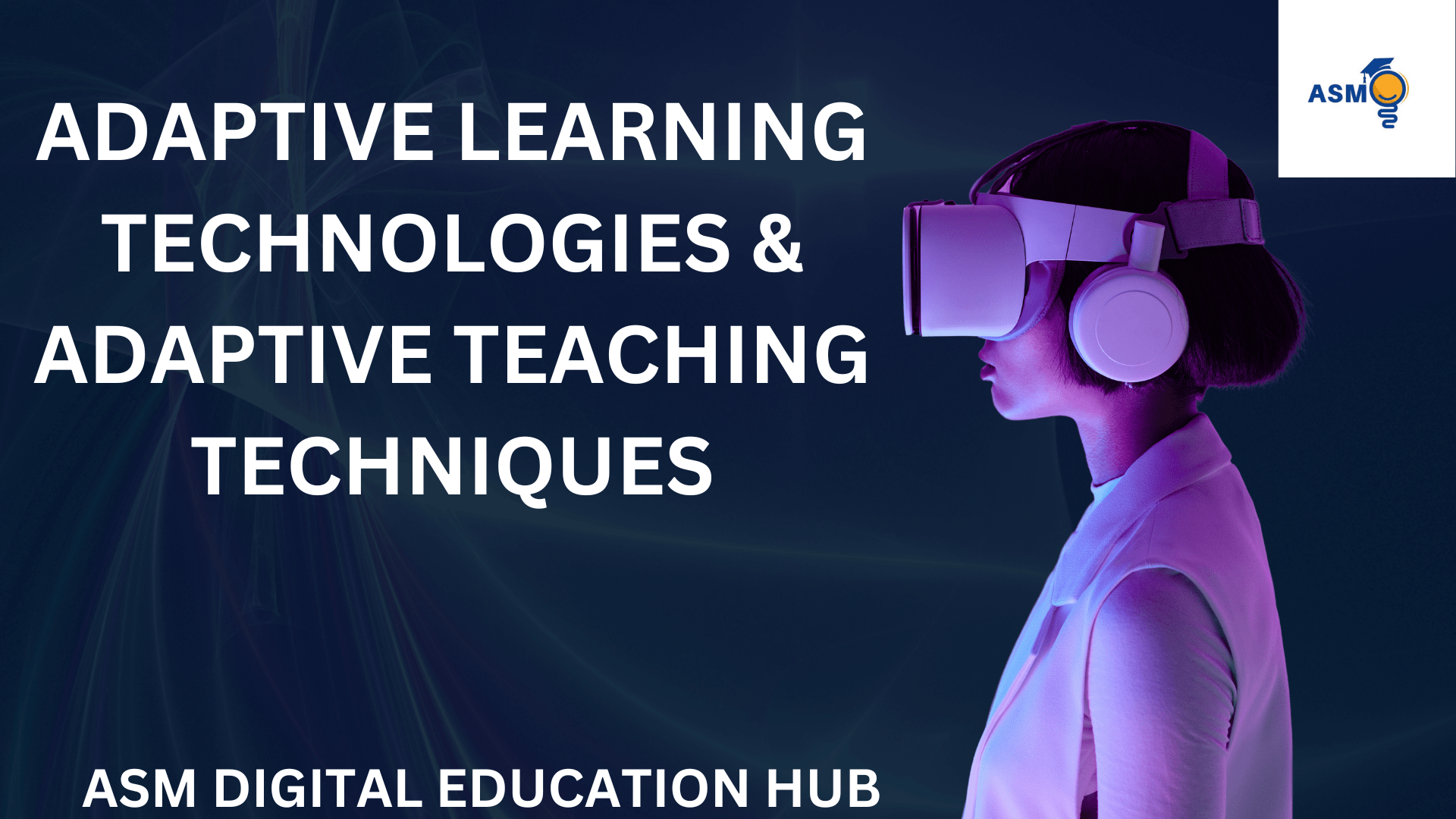Differentiated instruction, Responsive teaching methods, Data-driven learning, Adaptive educational technology, Educational technology tools, AI-driven education
Personalized Learning Paths of Education:
Adaptive learning technologies analyze learner performance and tailor the learning path to individual needs. Learners progress through content at their own pace, with the system adjusting difficulty levels based on their proficiency.
Intelligent Tutoring Systems Education:
These systems provide personalized instruction, feedback, and support. They analyze learner responses to identify strengths and weaknesses, offering targeted guidance and additional resources as needed.
Data Analytics in Education:
Adaptive learning platforms use data analytics to collect and analyze information about learner interactions, performance, and preferences. This data informs the system’s adaptive algorithms, allowing for continuous improvement.
Predictive Analytics in Education:
By using historical data and patterns, adaptive learning technologies can predict future learner behavior and performance. This enables proactive interventions to address potential challenges before they hinder progress.
Adaptive Assessments of Education:
Adaptive assessments adjust question difficulty based on the learner’s performance. If a learner answers a question correctly, the system may present a more challenging question, and vice versa. This ensures that assessments align with the learner’s current level of understanding.

Gamification and Interactive Elements:
Some adaptive learning platforms incorporate gamified elements, such as badges, points, and levels, to enhance engagement. Interactive features, like simulations and virtual labs, provide hands-on learning experiences.
Content Customization:
Adaptive learning technologies customize content presentation based on individual learning styles, preferences, and prior knowledge. This may involve adjusting the format of materials, providing multimedia resources, or offering alternative explanations.
Real-Time Feedback:
Learners receive immediate feedback on their performance, helping them understand their strengths and areas for improvement. Real-time feedback fosters a continuous learning cycle and promotes self-directed learning.
Natural Language Processing (NLP):
NLP technologies enable adaptive learning systems to understand and respond to learners’ natural language inputs. This can be particularly useful in language learning or open-ended assessments.
Mobile Learning and Accessibility:
Adaptive learning platforms often support mobile learning, allowing learners to access content on various devices. This enhances accessibility and accommodates diverse learning environments.
Collaborative Learning Features:
Some adaptive platforms incorporate collaborative learning components, such as group activities or discussions. Collaborative features promote interaction and social learning among learners.
Artificial Intelligence (AI) Integration:
AI technologies play a crucial role in adaptive learning, enabling systems to analyze complex data sets, make predictions, and continuously refine the adaptive learning experience.
Scaffolded Learning:
Adaptive learning technologies provide scaffolding, offering additional support or guidance when learners encounter challenges. This ensures that learners receive the assistance they need to overcome difficulties.
Dynamic Learning Analytics Dashboards:
Learning analytics dashboards offer real-time insights for both learners and instructors. Learners can track their progress, while instructors can monitor overall class performance and identify areas that may need attention.
Increased Accessibility
- Online platforms and virtual classrooms break geographical barriers.
- Flexible learning options cater to diverse student needs.
Efficient Course Management
- Learning Management Systems (LMS) streamline coursework, assignments, and communication.
- Facilitates organization and easy access to learning materials.
Personalized Learning
- AI and data analytics help customize learning experiences.
- Tailors educational content to meet individual student needs.
Immersive Learning with VR and AR
- Virtual reality and augmented reality provide hands-on, practical learning experiences.
- Beneficial for fields like healthcare, engineering, and the sciences.
Global Collaboration
- Cloud-based tools enable students to collaborate with peers and researchers worldwide.
- Encourages interdisciplinary learning and global perspectives.
Preparation for the Job Market
- Tech integration in graduate programs equips students with in-demand skills.
- Prepares students for a competitive, technology-driven job market.
Continuous Improvement Mechanisms:
Adaptive learning systems often include mechanisms for continuous improvement. They may use feedback loops, iterative development cycles, and regular updates to enhance the effectiveness of personalized learning experiences.
Adaptive learning technologies have the potential to revolutionize education by tailoring instruction to the unique needs of each learner, fostering a more effective and engaging learning experience.


